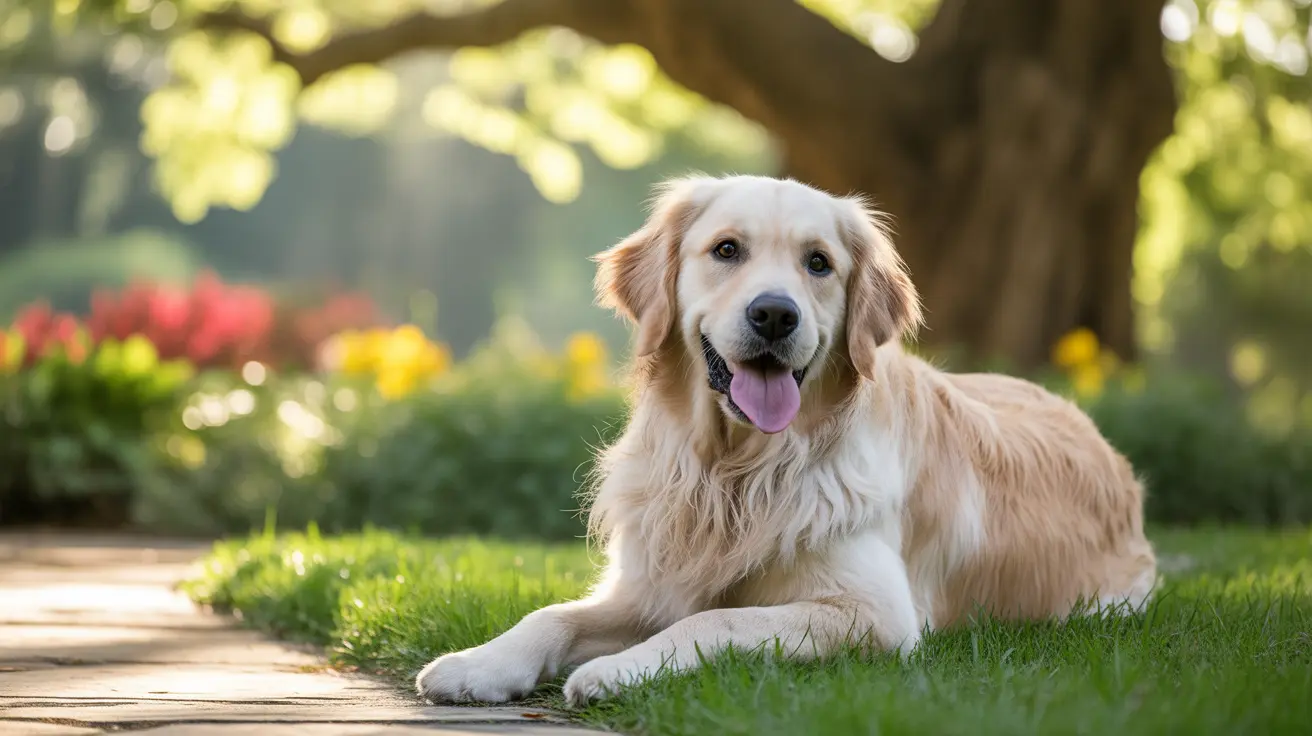Golden Retrievers are beloved for their friendly personalities and boundless energy, but their tendency to pant frequently can sometimes worry their owners. While panting is a natural and essential behavior for dogs, understanding when it's normal versus when it might signal a problem is crucial for Golden Retriever parents.
In this comprehensive guide, we'll explore the various reasons behind your Golden Retriever's panting habits and help you distinguish between healthy and concerning breathing patterns. We'll also provide practical advice on when to seek veterinary care and how to prevent panting-related health issues.
Understanding Normal Panting in Golden Retrievers
Panting is your Golden Retriever's primary cooling mechanism. Unlike humans who can sweat through their skin, dogs only have sweat glands in their paw pads. This makes panting their main method of regulating body temperature and maintaining comfort.
A healthy Golden Retriever typically breathes 10-30 times per minute at rest. During or after physical activity, this rate naturally increases as your dog works to cool down and replenish oxygen levels.
Common Triggers for Increased Panting
Physical Activity and Exercise
Golden Retrievers are naturally energetic dogs who love to play and exercise. Increased panting during and after physical activity is completely normal and helps them:
- Cool down their body temperature
- Deliver more oxygen to their muscles
- Release excess heat from exertion
Weather and Temperature
Golden Retrievers have thick double coats that can make them especially susceptible to overheating. You may notice increased panting during:
- Hot summer days
- Direct sun exposure
- Time spent in warm indoor environments
- Humid conditions
When Panting Becomes Concerning
While some panting is normal, certain patterns may indicate underlying health issues. Watch for:
- Excessive panting when resting or in cool environments
- Panting that seems louder or more labored than usual
- Breathing rates exceeding 40 breaths per minute at rest
- Panting accompanied by other unusual symptoms
Medical Causes of Excessive Panting
Several health conditions can cause increased panting in Golden Retrievers:
- Heart disease
- Respiratory infections
- Cushing's disease
- Pain or discomfort
- Allergic reactions
- Obesity
Managing and Preventing Excessive Panting
To help keep your Golden Retriever comfortable and prevent excessive panting:
- Maintain a healthy weight through proper diet and exercise
- Provide plenty of fresh water and shade during outdoor activities
- Schedule exercise during cooler parts of the day
- Keep up with regular veterinary check-ups
- Monitor breathing patterns to establish a baseline
Frequently Asked Questions
Why does my Golden Retriever pant so much after exercise or play?
Panting after exercise is normal and helps your Golden Retriever cool down and recover. Their thick coats and high energy levels mean they may pant more than other breeds during physical activity. The panting should subside within 10-20 minutes of rest.
When is panting in my Golden Retriever a sign of heatstroke or overheating?
Signs of heatstroke include excessive panting combined with drooling, weakness, vomiting, collapse, or bright red gums. This is a medical emergency requiring immediate veterinary care. Move your dog to a cool area and contact your vet right away.
Can anxiety or stress cause my Golden Retriever to pant excessively?
Yes, anxiety and stress can cause increased panting in Golden Retrievers. This often occurs during thunderstorms, fireworks, or separation from owners. Look for other stress signals like pacing, whining, or hiding.
What health problems can lead to excessive panting in Golden Retrievers?
Several health conditions can cause excessive panting, including heart disease, respiratory problems, hormonal disorders like Cushing's disease, pain from injuries or arthritis, and allergic reactions. Any unexplained changes in breathing patterns warrant veterinary attention.
How can I tell if my Golden Retriever's panting at rest is abnormal and requires a vet visit?
Panting at rest is concerning if it:
- Exceeds 40 breaths per minute
- Occurs in cool, calm environments
- Persists for extended periods
- Is accompanied by lethargy, coughing, or other unusual symptoms
Contact your veterinarian if you observe any of these signs.
Conclusion
While panting is a natural behavior for Golden Retrievers, being able to distinguish between normal and excessive panting is crucial for their health and well-being. By understanding the various causes and warning signs, you can better monitor your dog's breathing patterns and know when to seek professional help. Remember to provide appropriate exercise, maintain a healthy weight, and stay vigilant for any changes in your Golden Retriever's panting habits.






